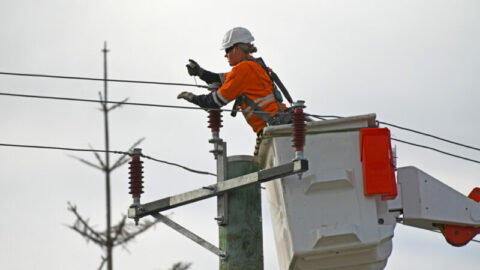Following the annual Responsible Investment Benchmark Report, the Responsible Investment Association Australasia (RIAA) has announced the organisations it considers are Responsible Investment Leaders.
In its annual Responsible Investment Benchmark Report, the RIAA reviews the investment practices of 140 financial institutions and is the most comprehensive review of the responsible investment sector in Australia.
The Clean Energy Finance Corporation (CEFC) has been named a Responsible Investment Leader for the second year in a row.
The number of Australian assets managed using a rigorous, leading approach to responsible investment has hit a record value of $1.54 trillion, now accounting for 43 per cent of the total market, according to a new study by the RIAA.
In addition, a record 45 per cent of investment managers are holding companies to account on matters relating to environmental and social issues, and reporting back to investors on the outcomes achieved. This number has more than doubled in the past two years, with only 21 per cent of investment managers engaging in such activity in 2019.
The findings come as part of the latest Responsible Investment Benchmark Report, researched in collaboration with EY. Responsible investment, also known as sustainable or ethical investment, is a broad-based approach to investing which factors in people, society and the environment, along with financial performance, when making and managing investments.
Recent high profile action from shareholders with companies such as AGL shows investors have significant influence in shaping their future direction and strategies on issues such as climate change.
This year’s report found that this approach – also known as corporate engagement – saw the greatest increase out of any responsible investment strategy in 2021. Approximately $726 billion in assets under management is now being used by fund managers to agitate for change on ESG issues, up 54 per cent from 2020.
The study also shows excellence in responsible investment materialises into substantial financial returns.
Products certified under RIAA’s Responsible Investment Certification Program, on average, outperformed the market in the medium to long term, and over some time frames achieved two or three times the returns. This outperformance is seen both when comparing RIAA certified funds to the overall market, as well as to products of investment managers who self-declare as practising responsible investment.
Estelle Parker, Executive Manager for Programs at RIAA, said the study shows a tipping point of the responsible investing trend.
“Companies can no longer tick a box by providing cursory ESG metrics. Investors are expecting real, measurable action towards environmental and social issues,” Ms Parker said.
“Investment managers are also getting much better at backing up their claims around the sustainability of their portfolios, as they don’t want to find themselves on the wrong side of tightening greenwashing regulation and scrutiny.
“A record 74 investment managers out of 140 have been identified as Responsible Investment Leaders, who explicitly and systematically consider ESG factors in the allocation of capital, and are decidedly transparent, reporting publicly not just on their activities to improve environmental and social sustainability, but also the outcomes they achieve.”
Climate change remains a standout focus for investment managers, targeted through negative and positive screening practices as well as a growing number of sustainability-themed loans and investments. An emerging positive screen topic in 2021 was gender diversity and women’s empowerment which jumped in priority from tenth place in 2020 to sixth in 2021.
Emma Herd, Climate Change and Sustainability Services Partner at EY said, “Investors are facing more demand and increasing scrutiny on their approach to responsible investment and the market is responding, with more funds being managed responsibly than ever before.
“As a wave of mandatory reporting and product disclosure regimes come into force, understanding the current state of the market and the range of approaches being adopted by responsible investors is critical.”















